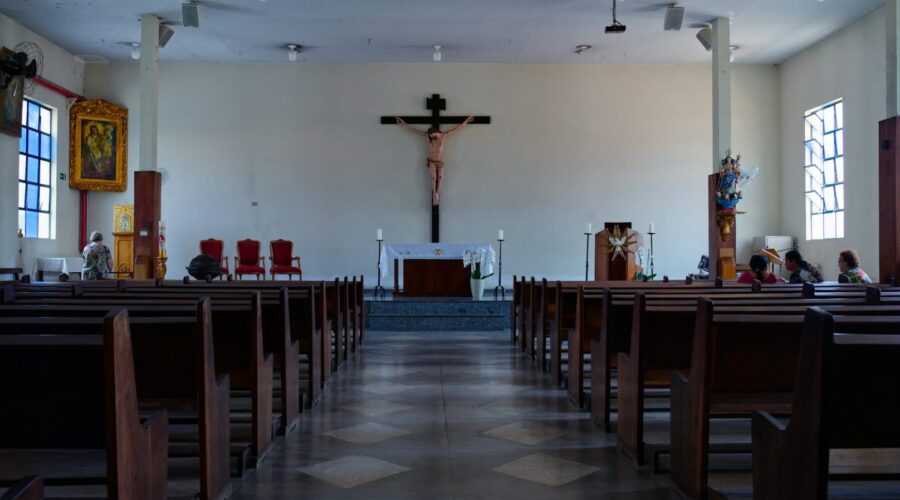Your cart is currently empty!
The Immaculate Conception: A Comprehensive Guide

Introduction
The Immaculate Conception is a central doctrine in the Catholic Church that holds that the Virgin Mary was conceived without original sin. This belief is distinct from the doctrine of the Virgin Birth, which states that Jesus was conceived without a human father. The Immaculate Conception is celebrated by the Catholic Church on December 8th.
Historical Development
Early Beliefs
The idea that Mary was conceived without sin dates back to the early centuries of Christianity. Tertullian, a third-century theologian, first proposed the concept of Mary’s sinless conception. However, it was not until the Middle Ages that the doctrine gained widespread acceptance.
Definition by Pope Pius IX
In 1854, Pope Pius IX officially defined the dogma of the Immaculate Conception. The bull Ineffabilis Deus declared that Mary was “from the first instant of her conception… preserved from all stain of original sin.” This dogma solidified the belief in Mary’s sinless conception as an official teaching of the Catholic Church.
Biblical Foundations
Although the term “Immaculate Conception” is not explicitly found in Scripture, many passages are cited to support the doctrine.
Genesis 3:15
The “Protoevangelium,” or “first gospel,” in Genesis 3:15 foreshadows a woman who will crush the serpent’s head, representing the victory over sin and evil. Catholics interpret this passage as a reference to Mary’s role in vanquishing original sin.
Luke 1:28, 42
The Archangel Gabriel addresses Mary as “full of grace” (Luke 1:28) and “blessed among women” (Luke 1:42). These expressions are seen as confirming Mary’s sinlessness.
Theological Significance
The Immaculate Conception has several key theological implications:
Preservation from Sin
It preserves Mary from the consequences of original sin and its effects, such as concupiscence and the inclination to do evil.
Redemption and Grace
Mary’s sinless conception highlights the redemptive power of Christ’s grace, which can overcome even the effects of original sin.
Model for Humanity
Mary’s unique status as the woman who was conceived without sin serves as a model for all Christians, demonstrating the possibility of living a holy and virtuous life through God’s grace.
Implications for Mariology
The Immaculate Conception has a profound impact on Mariology:
Immaculate Heart of Mary
Mary’s heart is believed to be pure and undefiled by sin, giving rise to the devotion to the Immaculate Heart of Mary.
Assumption of Mary
The belief that Mary was assumed into heaven body and soul is seen as a consequence of her immaculate conception.
Celebration and Veneration
The Immaculate Conception is celebrated by the Catholic Church with:
Solemnity
December 8th is a solemnity, the highest rank of feast day, dedicated to the Immaculate Conception.
Prayer
The “Hail Mary” prayer includes the phrase “conceived without sin,” which invokes Mary’s unique privilege.
Devotional Practices
Rosaries, novenas, and other devotional practices are used to honor the Immaculate Conception.
Objections and Criticisms
Some Christian denominations, including Protestants and Eastern Orthodox, reject the doctrine of the Immaculate Conception. They argue that:
Lack of Scriptural Evidence
The term “Immaculate Conception” is not found in the Bible, and there is no clear passage that explicitly supports the doctrine.
Redemptive Nature of Christ
They emphasize that only Christ is conceived without sin and that the need for redemption applies to all humans, including Mary.
Conclusion
The Immaculate Conception is a significant doctrine in the Catholic Church that proclaims the unique status of Mary as the woman who was conceived without original sin. It has a profound theological and spiritual meaning, emphasizing the redemptive power of God’s grace and Mary’s role as a model for Christian living. While not universally accepted, the doctrine continues to be a central tenet of Catholic faith and devotion.